As an amateur scholar and die-hard enthusiast of everything to do with Alice in Wonderland, I have launched a podcast that takes on Alice’s everlasting influence on pop culture. As an author who draws on Lewis Carroll’s iconic masterpiece for my Looking Glass Wars universe, I’m well acquainted with the process of dipping into Wonderland for inspiration.
The journey has brought me into contact with a fantastic community of artists and creators from all walks of life—and this podcast will be the platform where we come together to answer the fascinating question: “What is it about Alice?”
For this episode, it was my great pleasure to have Adrienne Kress join me as my guest on this episode! Read on to explore our conversation and check out the whole series on your favorite podcasting platform to listen to the full interview.
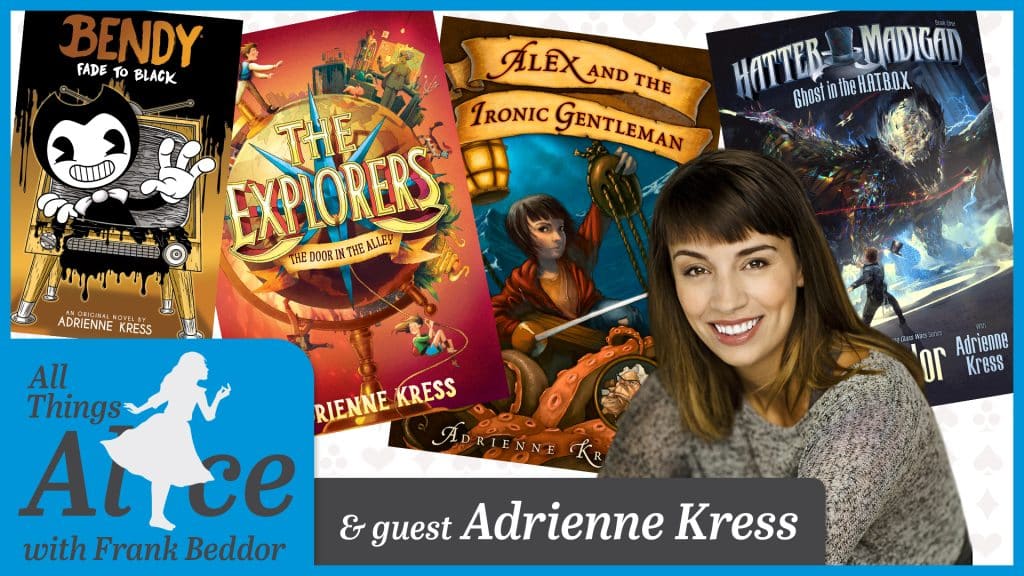
Frank Beddor
As a kid, the whole idea of identity and trying on these different identities while growing up is really universal. But what's remarkable, since I've been working in the Alice universe, is how deeply seated it is in culture and how Alice has become such a muse for creatives. We never had this conversation. Can you tell us a little bit about Alex and the Ironic Gentleman? I didn't know that it was inspired by Alice. How did you use elements of Alice in your book?
Adrienne Kress
The very basic plot is a girl, Alex, has to rescue her grade six teacher from pirates. She was raised by her uncle but he was killed and the only adult in her life who’s a parental figure is this teacher. At the same time, she's found a treasure map, which is what these pirates were looking for. So it's also a treasure hunt kind of thing. Act One establishes everybody and begins the adventure and has pirates kidnap the teacher. Act Three, we go to sea. We’ve got the H.M.S. Valiant, we’ve got our good guys and then we've got the Ironic Gentlemen, who are the pirates. We have a proper Treasure Island-style, Peter Pan-style adventure.
But Act Two is very much Alice in Wonderland. Alex has to get to Port Cullis, which is a port town where she's trying to get a boat. So the journey from her town to Port Cullis, that's the Alice bit and it's very much Alice in Wonderland. She's thrown into a very absurdist world. Even though it's her world, her world is absurd. Everything is very episodic. It starts with a very strange train sequence that's my Beckett, existential absurdism. My very first play was that Waiting for Godot style, the circle that never ends. I find it horrifying and deeply amusing at the same time. So it starts with that and then Alex ends up being plopped in a forest. Then in this forest, she comes across different people who are absurd caricatures or, in one case, an extremely ginormous octopus who’s an older English-style lush actor like Peter O'Toole.
Alex has to help solve its problems to move on to the next step, which is yet another person who needs another thing. She's basically trying to get to Point B but she keeps getting waylaid. I remember my editor being like, “Okay, if we're going to do this, it's not very forward moving so let's make sure that we have no extraneous words.” We did cut one scene where she meets a French horn player, which I was sad about because I used to play French horn which is why that was in there. But she has these scenes and for some readers that’s their favorite bit. I think the Alice fans at heart get it. Then some people are like, “Oh my god, I just wanted to get to Port Cullis.” They wanted that more straight journey.
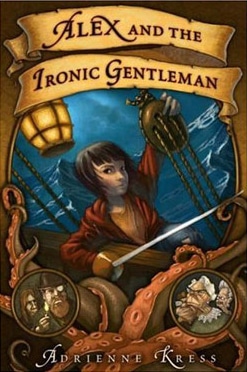
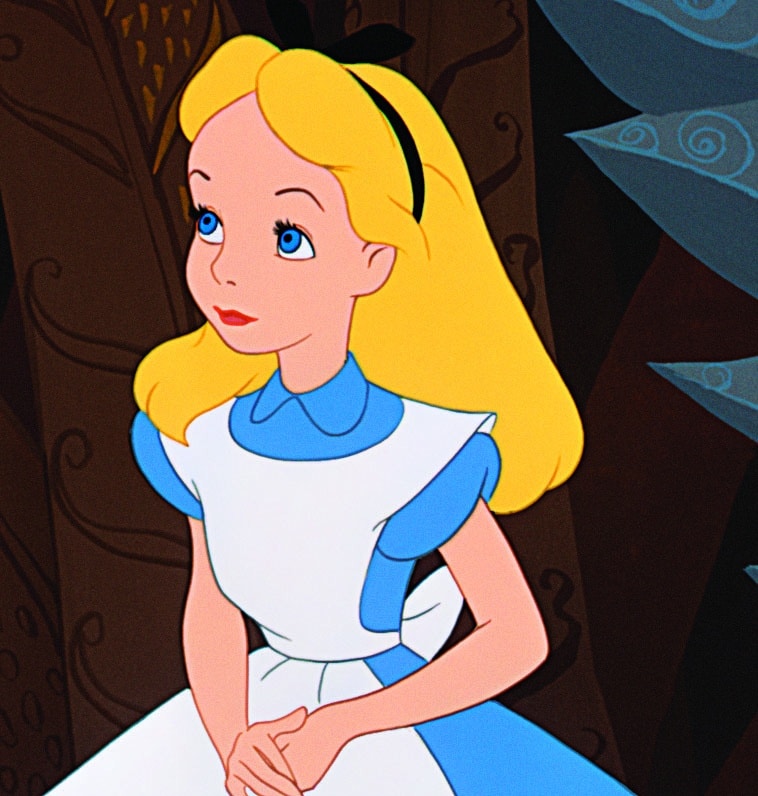
FB
They wanted Treasure Island.
AK
Exactly. We get there. I just wanted to do a little bit before that.
FB
So if you like Alice in Wonderland, Peter Pan, Treasure Island, or 20,000 Leagues Under the Sea, this is a book for you.
AK
I did call it an homage to children's lit. It’s the first book I ever finished writing. The first children's book I ever wrote. So everything was very much an homage. Everything was something else. I put friends in it. Previous employers were in it. I tried to represent everyone nicely.
It was just everything I love in a book not thinking it would be published, not even thinking about publishing. Then, of course, there’s the challenge of realizing you have to write a second more challenging thing. I think writing a first book is hard but you're so focused on this crazy huge accomplishment, “I have this goal and it took me 10 years, but I'm going to do it and put everything I've got into this thing.” Then you get published and you start to have a career and somebody asks you for a second book and you're like, “But I can't do what I did. I can't do that all over again.”
FB
I thought it was exactly the opposite. There was something about the first one in terms of not having any pressure because you don't think it's gonna get published and you can take 5-10 years, however long it takes. However, once it's there, and you figured out the rules and the logic, then yes, there's a pressure. But so much of it's already a roadmap, and much easier, and the second book certainly took me a lot less time. I did feel pressure from the editors a little bit more, but I was happy that I had already established that, if they liked this world, I'd been working on it. I have all this stuff in a filing cabinet. I'll just pull more stuff.
AK
There is a difference. I don't know why I did this to myself. I've now written some series but generally, I always enjoyed standalones. I decided for the second book, I was going to write a completely different story. It was set in the same world but with completely different characters and, a completely different story, and then halfway through, we would bring Alex back into it and stuff. So I think writing a direct sequel has its unique challenges, especially if people really liked the first one. It's like, “Oh, no, how do I make this as well-liked, if not more well-liked too? How do I write the second book, but not rest on my laurels? There are a lot of challenges with that. But I think for me because I decided I'm going to write a second book that's completely not the first, I felt again like I was starting a bit from scratch.
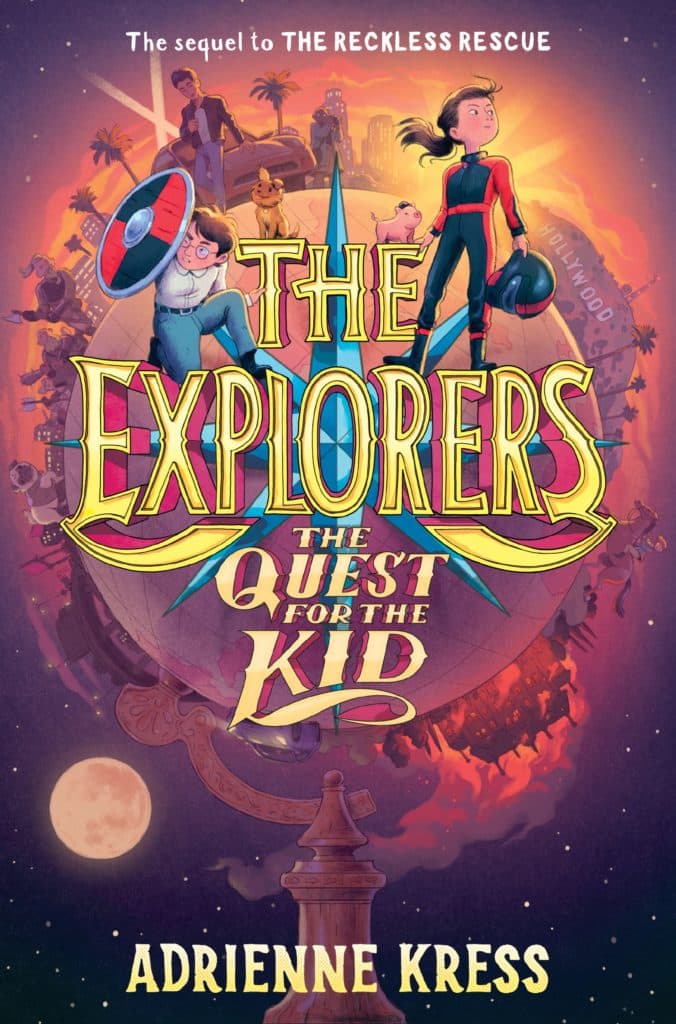
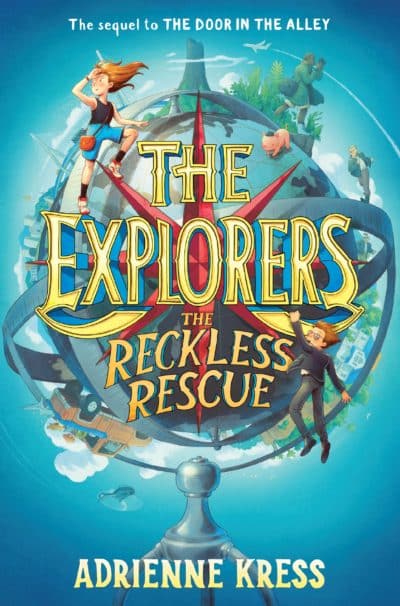
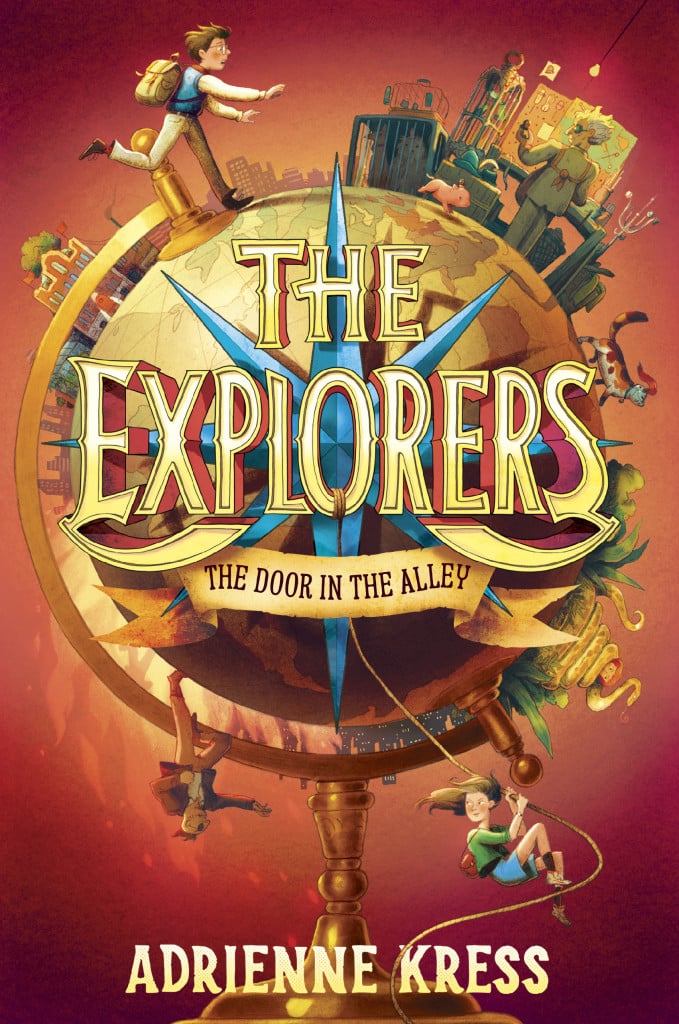
FB
That's for sure
You have a whole new series out. You have three books in the Bendy series.
AK
The Bendy books are a series, but they're also standalones. So we've done it again. But The Explorers, which is just mine is a proper three-book series.
FB
Can you walk us through that? Did you know you were going to have a trilogy when you started it?
AK
Yes. It was a three-book deal from the beginning. Just from the beginning, it was a very classic, hoping that each book is their own adventure but it had that very classic overarching arc. They had to collect things and they had to rescue somebody by the end.
FB
Were they saying they wanted the book to come out every year or every 18 months? Did you have that added pressure?
AK
It was every year or 18 months, I can't remember which, but it was definitely that. So that window where you had to write the whole of the next book and then go through the whole process again and write it in time with their deadlines
FB
I found that very stressful, by the way, hitting a deadline for the book. Because they said you're going to lose your audience. The audience is going to find some other series.
AK
There's one book in the Bendy book series, which is in the YA section because it’s a memoir. In the very first game, there's a book called The Illusion of Living, which is the memoir of Joey Drew, who’s the Walt Disney of this animation studio. So they wanted me to write the memoir, which was a really cool experience writing a memoir about an adult male for a young adult section. But with these three books, the other two are technically Y.A., there’s less of the pressure that you're talking about, which just blows my mind. “You're going to lose your audience.” Who says that? But that kind of pressure, when the developers of Bendy decided they wanted the next book, I guess they would talk to Scholastic about it, then Scholastic would come to me and say, “You have to get this to us in two months.” That level of fast. It isn't the same way as writing a series where they're like, “We need the next book ASAP for the series.” It was more like, “When we're ready for the next one, we gotta go, go, go."
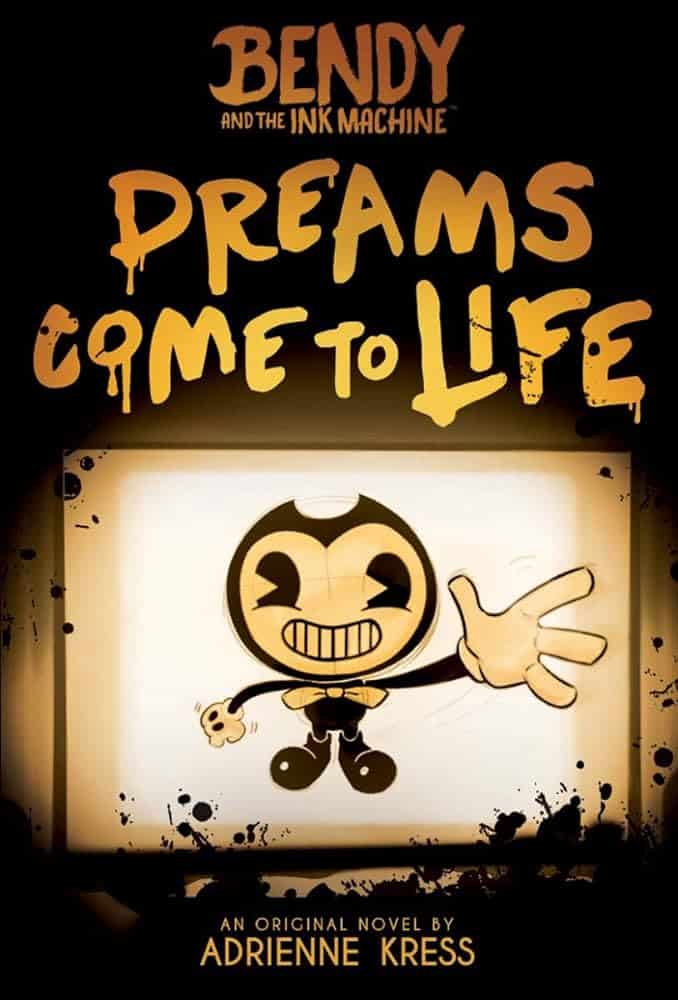
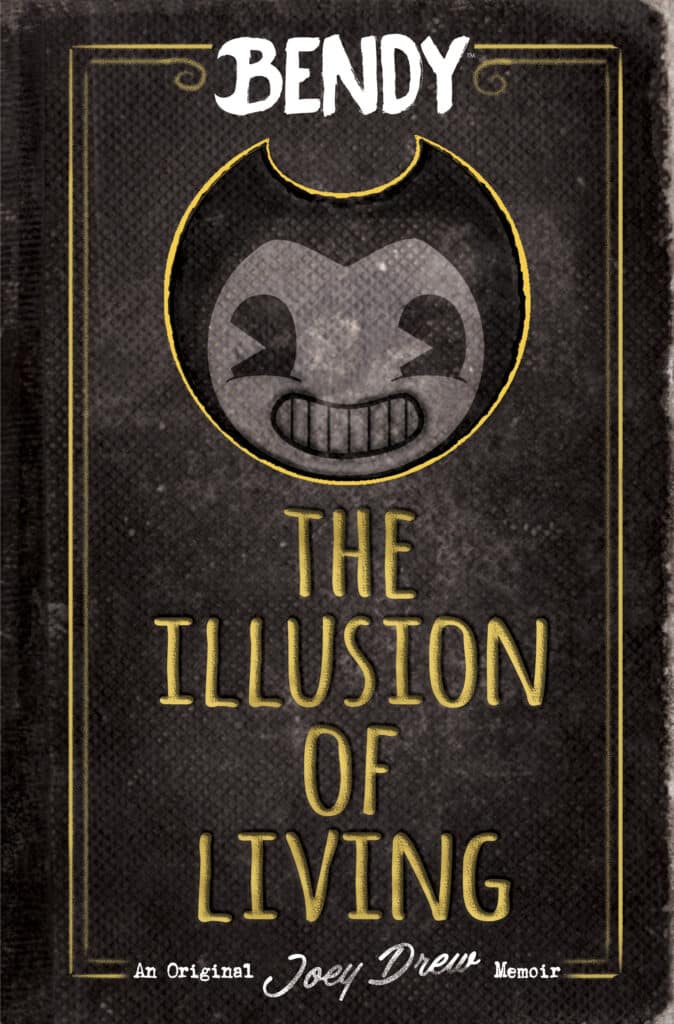
FB
Just to make it clear for the listeners, Bendy is based on a video game. So they needed these books for the day and date of releasing a new game?
AK
I don't fully know what the decision-making process is there. I'm just happy to be a part of it. So the second game was released this time last year. I think it's possible that when they finished working on the game, they were like, “Okay, now we would like another book.” They were so focused on the game, as they should be. But I believe it was a year from being told they’d like another book. So that's even before I've written an outline to send to them. It was a year, from that point to the release of the most recent one. This time last year, I would have been knee-deep in writing it.
The most recent one, Fade to Black, came out at the beginning of October and I don't think I had started writing it last year at the beginning of October.
FB
Let me just get all these titles right. So Bendy and the Ink Machine: Dreams Come to Life was book one, which came out in 2019. Did you have to audition for this? Send in an outline and based on the outline, they chose you or did you have a pre-existing relationship?
AK
I think they reached out to maybe four other authors and there was very little that they required. They wanted it to be Y.A., set in the studio, the games take place decades after the studio is over, so essentially, they wanted it set in the 1940s. That's about it. Then I came back saying I'd like to do an apprentice who's 17, and works in the art department because obviously, the whole point of his game is art. So let's put them in the art department. They liked that and they were thinking the exact same thing. At that point, all of us who they had asked wrote pages. I think they wanted about five pages but I asked if I could submit 15. So I did the opening which is almost entirely the same opening of Dreams Come to Life. I guess they liked it, which was very nice.
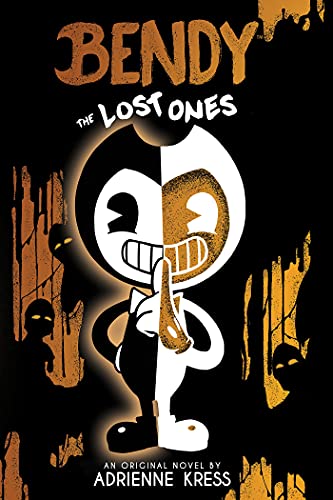
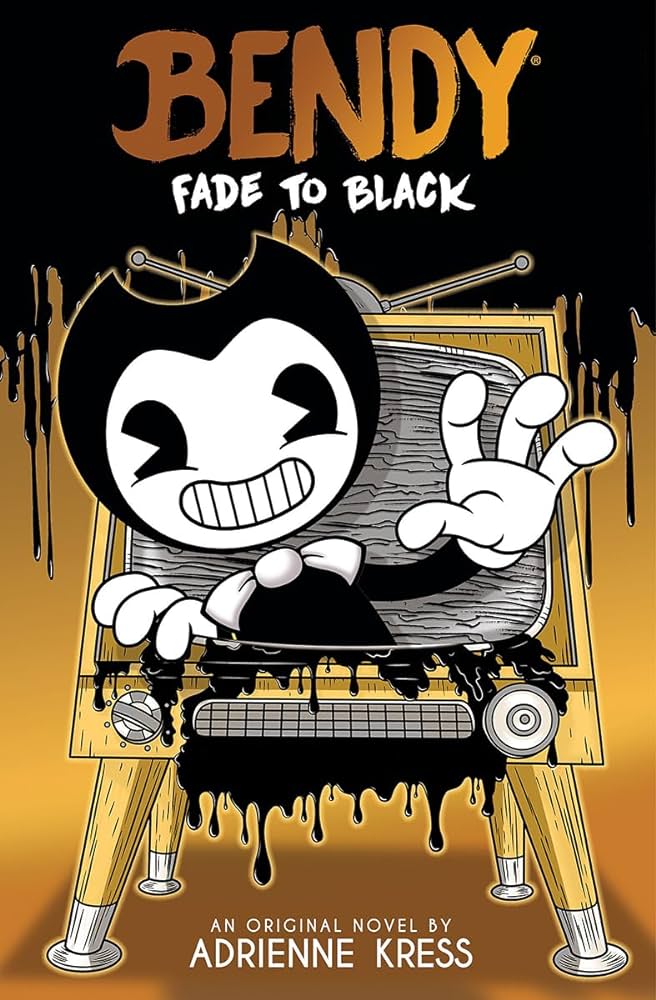
FB
And the second is Bendy: The Illusion of Living. The third one is Bendy and the Ink Machine: The Lost Ones and the most recent book is Bendy: Fade to Black.
Also, it was published through Scholastic, which is great because they have such a far reach and they were your original publishers as well.
AK
They were the ones who published Alex and the Ironic Gentleman. They were the very first.
FB
You're keeping it in the family. That must have been nice. Do they have an editor that they assigned to these books?
AK
So it's fascinating and goes back to what I was saying about reluctant readers. They have an imprint called AFK, which means Away From Keyboard. For those who don't know your acronyms, which I did not, that's a very cool online acronym. They did the Five Nights at Freddy's books, which are massive.
I don't know when they actually started the imprint or whether it was on the back of how successful the Five Nights at Freddy's stuff was but they do all these video game tie-ins. My editors have all been incredible. What I really liked about it beyond it being fun is that they have this imprint that's all focused on video game tie-ins and you're getting all these readers like me, reluctant readers, who might not be into a book going “Well, that is my favorite video game.” I get it all the time from kids and teenagers, “I hate books,” or “I don't like reading. I've never really read a book. But I read this one because I love Bendy and it was really good.” I hope that the Bendy books spark that realization of “There are books for me. I just have to find them. They might not be what even the school is showing me but somewhere there are books for me.” So as the reluctant reader I really, really love that.
It’s so fun to read certain reviews, like on Goodreads, where they said the author didn't have to go this hard. No, I did. I have to get themes. I have to get morals. I have to get complicated ethics questions. I love that I'm able to do that and sneak that stuff into these books. Then next year, they're adapting the first book into a graphic novel, which I'm also super into. I've got a graphic novel of my own that's coming out in 2025 because it takes forever. It’s 250 pages and this incredible artist, Jade Zhang, has to illustrate it. I don't know how she's doing it. To me, it seems fast. But they're releasing Dreams Come to Life as a graphic novel next year. Again, I love that because I think graphic novels also open the world of reading even more.
FB
Are you adapting your own book, the prose, into the graphic novel or are they hiring somebody else to do that?
AK
They've hired a writer named Christopher Hastings, who's done this a fair bit. When I was first told there was going to be a graphic novel I was like, “They probably already have somebody but I could do it.” And then I thought, “No, even though I know how to write a script, how on Earth do you make that book that's almost 300 pages into a graphic novel?” Even if it's got the same number of pages, it's not going to be that same length.
FB
Let’s go to your graphic novel because that's fascinating. I wrote my prose and then I had no idea what I was doing and then I did a graphic novel and I look back on it and go, “Wow, I made so many mistakes and set up this so terribly.” But it was really, really fun to do and now I understand how different it is. Can you speak to writing your first graphic novel?
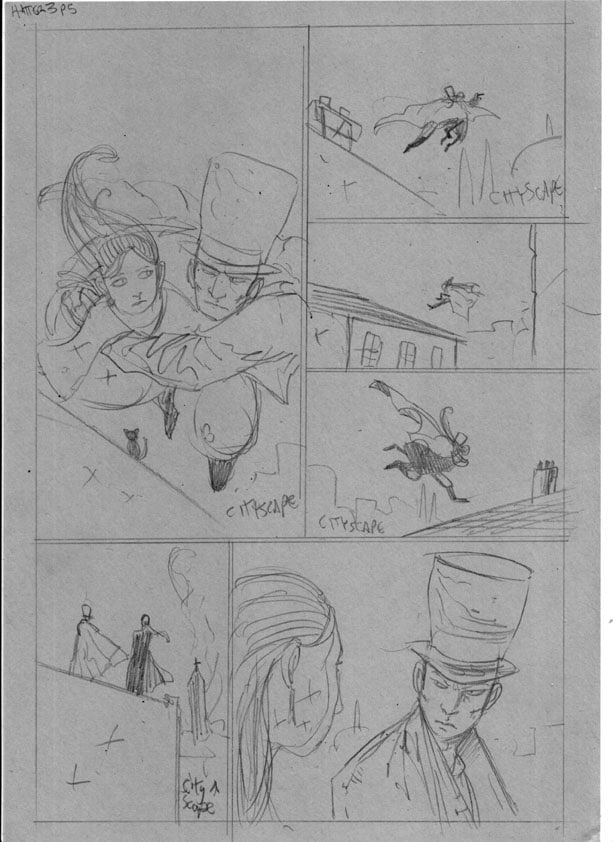
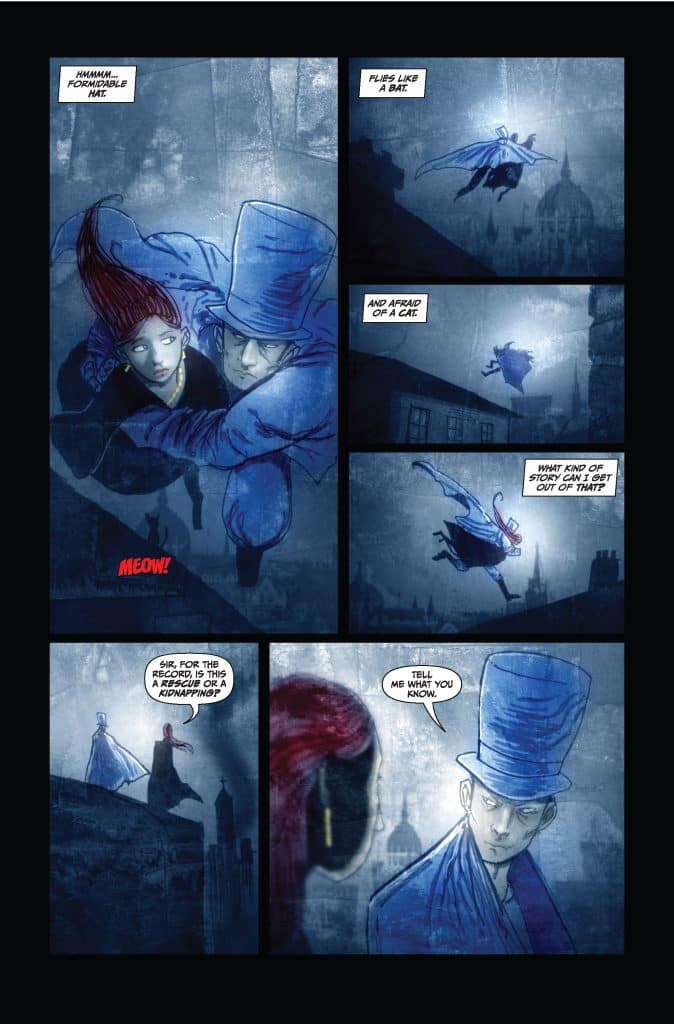
AK
The way that one writes a graphic novel is you have page numbers, specific pages that you have to dictate, and then what happens in specific panels on those pages. That is what is so challenging. I love it. I think very visually to begin with and I've read a lot of graphic novels. So I felt very comfortable playing around with how to use the space and what to do. I have a friend Stephanie Cook, who has a lot of kidlit graphic novels out now, and also is an editor, and she does tons with graphic novels in the comics community in general. So we met up, and I'm like, “Help me.” She told me generally, for middle grade, you don't want more than five panels on a page. Very pragmatic things like that which were very, very helpful. But generally, I had a good vibe, I had a good sense of aesthetics.
But what I didn't know until I was going back over it myself, and then working with an editor on it, was how hard editing a graphic novel is. Because in a book, screenplay, or play, if you need an extra bit of dialogue or an extra section to fully understand what's happening, “Sure, I'll put it here.” But if you add a single thing to a graphic novel script, it’s Tetris. You add another panel, and then that fifth panel has fallen off the page. Can I fit it into the next page? Or can I make this page six panels? Or do I need that panel? Maybe I can get rid of that panel? Or do we move everything down? But of course, there are two-page spreads and you have to make sure that you have pages two and three side by side. It can't be three and four because they're on opposite sides of the page. It's math.
FB
Every page you add is hundreds and hundreds of dollars for the artists because they get paid by the page unless you make a deal with them where they're part of the authorship. I found the editing process really, really challenging, as well. But the heavy lifting is the artists. Also, the artists can say, “Hey, I can't fit all those panels,” or “There's so much dialogue in this particular panel, we're going to have to move it around a little bit.” I was really leaning on Ben Templesmith.
AK
I've given so many challenges to Jane. So the story is called Ghost Circus and it's about these two kids and we meet these ghosts at the circus.
FB
Not in the H.A.T.B.O.X.?
AK
No ghosts in the H.A.T.B.O.X.
FB
It's in the circus, not the H.A.T.B.O.X. Okay.
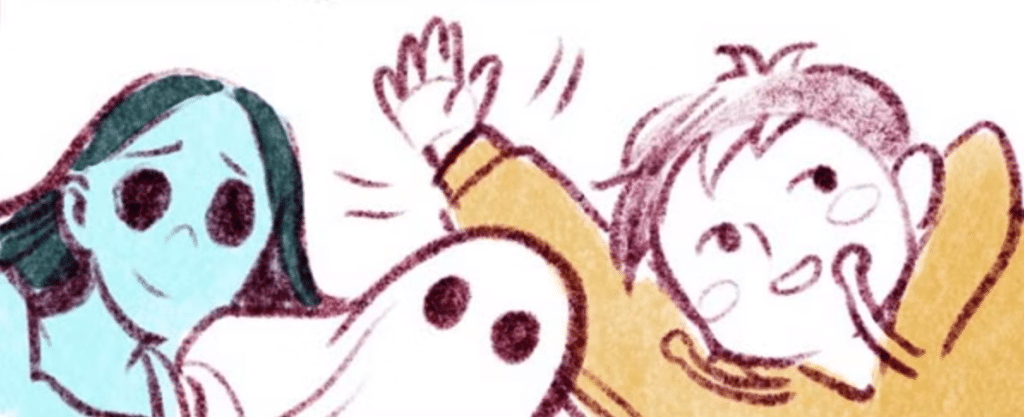
AK
There are flashbacks to how the ghosts became ghosts and they're set in all different time periods. So Jade’s drawing 1930s New York and then the savanna with elephants, plus the main timeline we're in with the ghost circus itself and all the characters there. It's so impressive. I feel like I'll know whether or not she had issues or whether she solved them. I think there's one or two times she'll do something with a couple of panels and I'm like, “Oh, yeah, that makes more sense.” But maybe just because I was so aware of the middle gradeness of it all, that was very much at the forefront of my mind. So being aware of the number of panels I needed per page. Then before even Jade came on board, editing it and working on it with the editor, he'd be like, “This is too much though. We're not going to fit that dialogue on our panel.” That’s where the math came in. But it was an incredible learning curve.
FB
But being a playwright, you really had a handle, because that is the closest form to writing for graphic novels.
AK
One hundred percent. Thank goodness I had that experience. Because I did look at other people's scripts, I wanted to learn, something even just as simple as page one, panel one. I wanted to know how that works. It’s great to have that reason for us to look at what other people have done but it didn't feel awkward because graphic novel writing comes from playwriting and the scripts look like a play.
FB
My wife and I are working on a graphic novel and this is her first graphic novel but she had been a staff writer on the show Bones. So she sort of understands but we were having the simplest conversations, “So, on the one page, is it panel 1 through 5, and then on page two, it's panel six, do you continue?” “No, it's just one through five and then the next page is one through five.”
AK
That question makes perfect sense. Like, “You're not repeating the same pattern?”
FB
But this time we hired an editor from the very beginning and said, “Okay, here's the basis of the story.” Then he was saying you have to have a sensitivity reader read it because some of the names and some elements don't quite line up based on the story. So we've done that. It's really a science, as you say, it's a math question. There is a lot more going on in the world in terms of when you create something to make sure it's accessible to all.
AK
I do think it's quite wonderful because I think we've been using sensitivity readers for a while, as authors. Reaching out to people we know or asking our friends, “Hey, do you know somebody who might be able to look over this section because I want to make sure this is as correct and sensitive as possible?” It’s all kind of already existed but I like that it’s been codified as a proper job. It's something that I think is more front and center of awareness, which I think is important. We had one, specifically for Bendy: Fade to Black, which is set after World War II and the dad has PTSD from the war. It's thematically important to the story. The whole story is actually about PTSD and mental health, and living with that sort of trauma. I did my level best, researching and trying to make things as sensitive and as authentic as possible, but Scholastic did give it to somebody to read over just to make sure that we were doing it right.
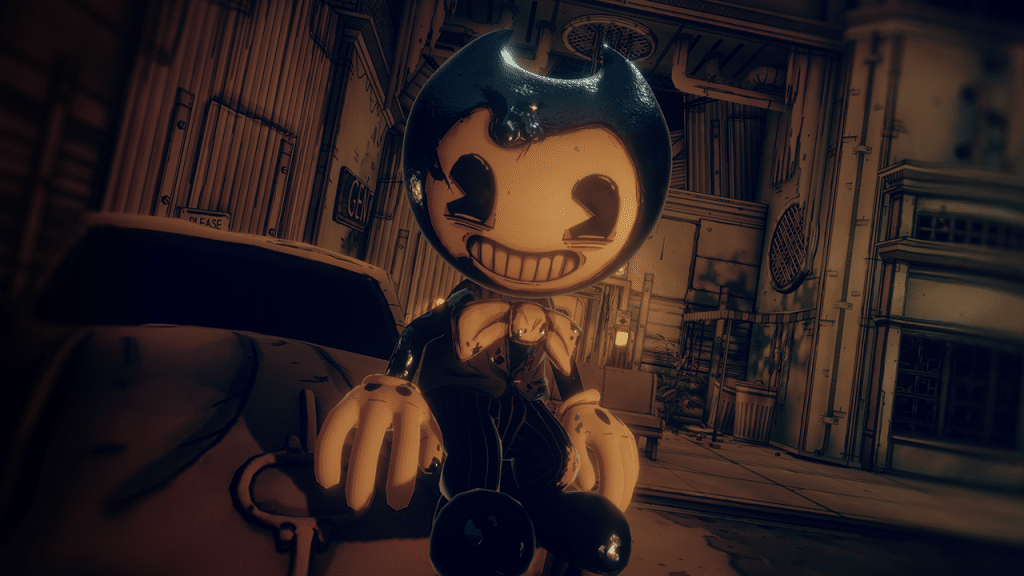
FB
I agree with you. The level of subtlety is really different and we must be mindful. For the graphic novel my wife and I are working on in particular, the characters all come from different places and we wanted to make sure that we were honoring everybody's heritage and getting it right. Are you interested in World War II much after doing that research?
AK
It’s one of those things that I think is by virtue of being a cinephile there are so many movies about World War II. But then, for my generation, it impacted our grandparents. So it's a very present thing. You've got a real direct connection versus perhaps other history that feels like it's almost a story. You don't have that visceral connection, which is why I think I might have struggled with other history classes and other history. It wasn't until I started doing art history where you could actually go and see the actual works and connect to the reality of it that I realized I did like history. I just need to consume it differently.
There are a lot of phenomenal YouTube shows that are about the domestic side of history. So a day in the life in Victorian England. What did you eat? Where do you sleep? With the first Bendy book, they wanted it just after World War II. I had been to New York and somebody recommended the Tenement Museum in the Lower East Side. They found a boarded-up tenement that hadn't been renovated, and hadn't been touched, and from there they started reaching out to families generationally for stories and objects, they looked at census information. What it's become is you go on these tours and it's like just walking through history. You’re there. You're seeing and touching everything and it was incredible. Shortly thereafter, I got the gig for the book and they wanted it set in the 1940s and I was like “Okay, I’ll make it New York.” I know their lives. I know where he lives.
FB
That's great. You were destined to write these. Are there going to be more books in this series?
AK
It’s been such a pleasure and I really enjoy working on them. I know the developers are very focused on the next games as well. They’re very sweet about it, which I'm grateful for because I was very nervous with a pre-existing fan base. I felt the same way about Hatter Madigan.
FB
That was really fun, working on Hatter Madigan: Ghost in the H.A.T.B.O.X. together. I knew I was in good hands when you came up with the idea that he was an insider and not an outsider. Your rationale was that Harry Potter had done that to such great success and there are a lot of other stories that do the same thing, that Hatter being an insider would make the story in this book unique. Once you pitched that, I said, “Okay, that's a very smart idea.”
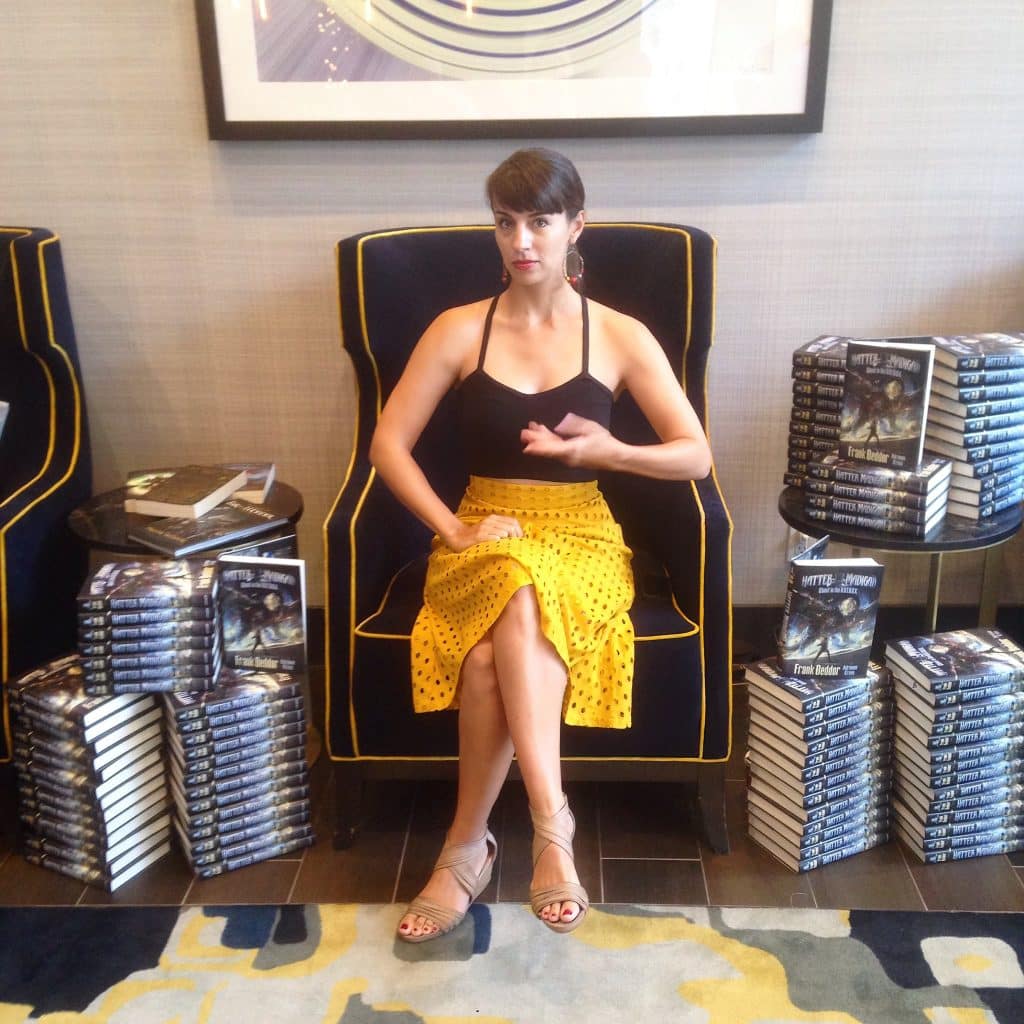
AK
Thank you. It was so much fun. The world is, God…creating that world the way that you have, with literally an encyclopedia, is so phenomenal and so intimidating as a writer. I admire so much just the depth of the world-building you had. As we were talking about with Alice in Wonderland, that's what's so great about all these adaptations of Alice is everybody's unique perspective.
FB
I was really trying to create a jumping-off place. Take some of the motifs and then use that creativity and share the sandbox and see what other people can bring to it. In every conversation I had with you and with other creatives, it doesn't work unless you bring yourself to it. You bring something unique that you can do. That's what I'm looking for. I don't want to be precious. I want to actually break away from it a lot more because I've gotten so focused. I think about it in a loop and I can't break out of it unless I have another voice.
AK
That’s so fair. You were asking me about the adaptation of Dreams Come to Life. There is no way, with the narrowness of focus that I have, that I could possibly bring a unique look to that book. But a new person adapting it would. That’s the crazy part, isn't it? Getting to write and make stuff up as a job.
FB
How do you balance writing your own work, adapting something, producing, and auditioning? What's the day-to-day balance that you try to accomplish?
AK
What's balance? I wish it felt more like I had a plan and I really stuck to it. The truth is, it's a little bit flying by the seat of your pants. I can't speak to what they are but I've got two write-for-hires that just happened this month. So right now balancing those…and I feel very good about the plan because the jobs are so vastly different. There are a lot of reasons why I can do that. I wouldn't always say yes to doing two projects right at the same time but these worked very nicely together, they complement each other. But this summer, I had no writing, anything. I didn't have edits. Nothing was sorted that way. So I decided I really wanted to write. I have a middle-grade story that's much more in the style of Judy Blume. So not fantastical in any way, more coming of age. I’ve been really wanting to write it for a few years so I'm like, “That's what I'm doing this summer.”
It takes place over a summer so it felt like the right temperature because I'm in Canada and we only get this so much. That's with my agent and we'll probably go on submission to publishers in the new year. But I'm glad I did that, over that gap in the summer, because then these projects came along and it would be sad because I don't think I would have been able to balance them with my original work. The key is taking advantage of moments. If you can't plan everything out ahead of time you can still have a sense of how long a project will take and maybe when that's done I’ll do this thing that’s more in my control. The pet projects that might not have a home yet. You have to still honor and give space to that project.
FB
You had a good summer. You finished a new book and you had a movie come out.
AK
Post on the movie was a long post. There was no way you could focus on anything else. I was also injured at the time so that didn't help. I think you're well aware that moviemaking can be entirely consuming.
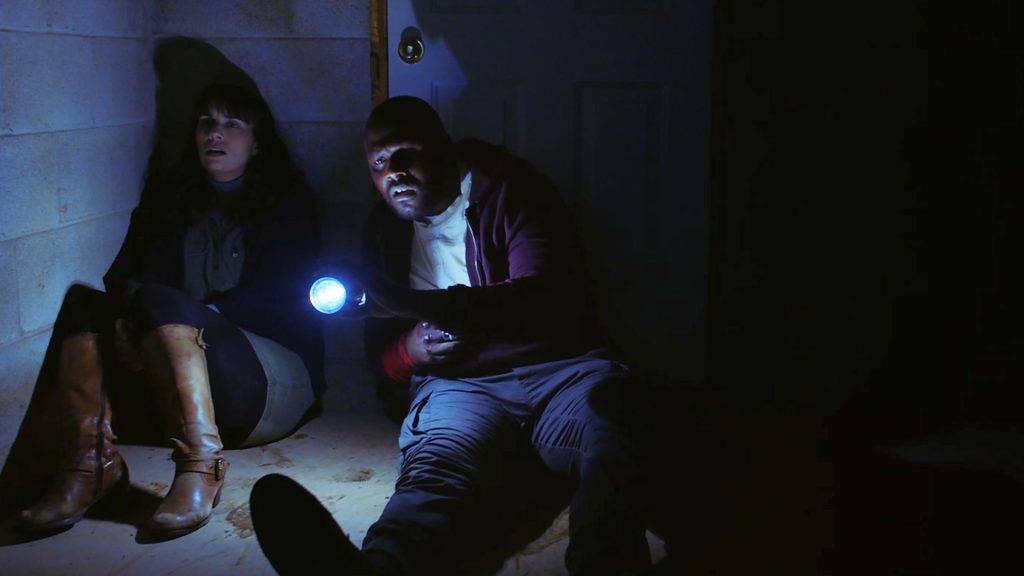
FB
When you're on set, forget it. You only have so many hours in the day and then you're gonna lose crew and locations.
AK
Exactly. If I was just acting, that would be different because you have a lot of downtime as an actor on a set. That's a great time to maybe just get a few words in the computer. It's much easier to multitask. But as a producer and as a writer on it, you do not have the same level of free time.
FB
You said fly by the seat of your pants and one of the reasons for that is so much of the work is speculative. There’s the focus you need to finish your book that you're not getting paid for or the movie that has enough financing just to get it made, but you're not making any money unless the movie sells. Then depending on how many bills you have to pay it's like “Okay, where am I putting my attention?” If I need to pay bills, I need that work-for-hire stuff, or for this movie, let's gamble and see if we have a little payday at the end of it. It does feel like when you're doing so many different mediums, you'll fly by the seat of your pants because there is no structure to it. It's really a self-generated structure. That's not so easy.
AK
A lot of people I talk to, even writers who are also doing a day job, I’m like, “Oh, if only I had all that free time.” I am very lucky. I get to write professionally as my job. That is an amazing, amazing gift. It's incredible. But there are other challenges. There was a long period where I was writing, especially with Alex and the Ironic Gentleman, but I also had a day job. Even once it got published, I still had a job. That job schedule does actually help schedule out your writing too because you only have certain windows in which you can do it. If you have the whole day, it's very hard to schedule things.
FB
I had this equivalent when I had kids and it's like, “Wait a second, I only have from 10 to midnight.”
AK
Exactly. It's hard. I do really admire people. There are just unique challenges for all of it. In the end, you have to be your own boss. You have to give yourself your own deadlines. With my deadline for this coming-of-age middle grade that I finished, I was telling friends, “I’m a week behind. I know I finished it the next week, but I really wanted to get it done earlier. I'm really annoyed with myself.” And my friends will say, “But it's your own deadline.” I treat my own deadlines like somebody else has imposed them.
FB
I agree with that. I think the more discipline, the better off you are. So yeah.
Before we go, if you were a character from Alice in Wonderland, who would you be and why?
AK
That's a good question. As a drama major in my art school, every year you had a different focus and in grade 10 a lot of that was performance, putting together a little production. We were very fortunate in our year that we got to do Alice in Wonderland. I was cast as the White Queen, which is what I wanted and I loved playing her. I don't think I had ever played a flighty character. I tend to get cast as intelligent, grounded human characters. I think the White Queen might have been the first sort of flighty, weird character I got to play. That meant a lot to me. I realized I like playing these characters. I just love the character and her wordplay. Her particular scene that she has with Alice, with all the wordplay, “tomorrow, yesterday, today.”
Growing up, I'd obviously seen the Disney movie. But there's a TV version from 1985 and Carol Channing is the White Queen, and she has a song. I grew up with that version. The Jabberwock was so scary that I couldn't watch half of it because it gave me nightmares, but I still loved it.
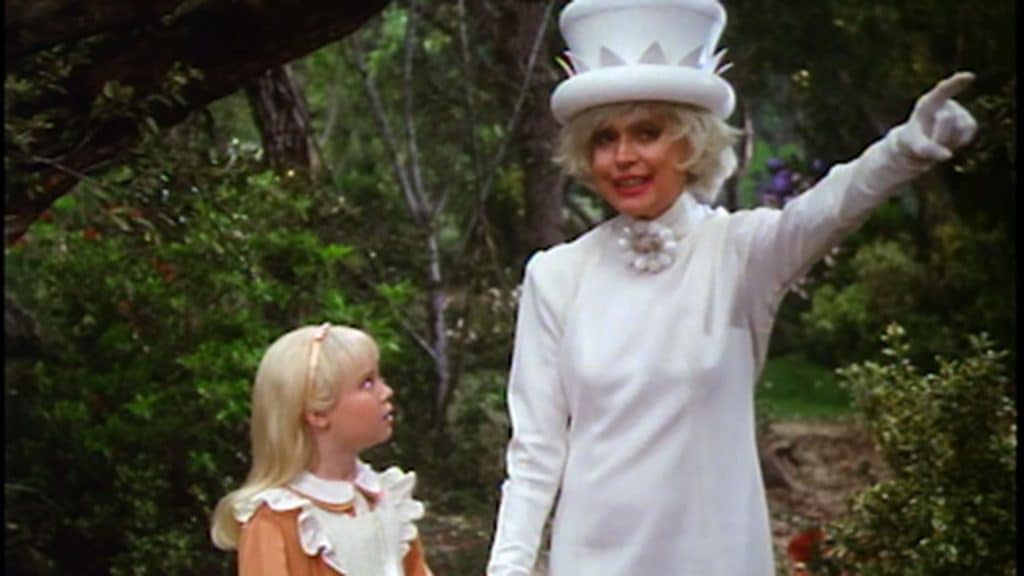
FB
That is a very, very good answer. It might be the best answer of anybody that I've interviewed because not all have played the character. So it's generational from the 80s.
AK
I've always loved her. Of course, I did get to dress as your Alyss and that was amazing. I need to wear that jacket again.
FB
If people wanted to start reading your work, where would you suggest they start? Would you say something like Alex and the Ironic Gentleman or The Explorers?
AK
I'm approaching 20 years since Alex came out, which blows my mind. It's just a very weird feeling. There's one boy who wrote this really great review. He sent me an email for Alex, probably one of the first kids who emailed me about a book. I reached out and we had this whole chat. He was 13 at the time, and now he’s an author.
But I do think Alex is still out there. It hasn't gone out of print, actually, which is very exciting. A few years ago, pre-COVID, I was in LA and went into The Last Bookstore, and the one thing they had Alex. I was thrilled that Alex was the one that was there. So if you can find Alex and the Ironic Gentleman that was quite seminal as it’s my first book. But if you can't, yes, go with The Explorers because that's out there. That's Random House.
FB
Thank you so much. This has been a real pleasure. You have such a diverse creative life. I think it's really inspiring.
AK
Thanks for having me. It's so nice to see you again.
For the latest updates & news about All Things Alice, please read our blog and subscribe to our podcast!